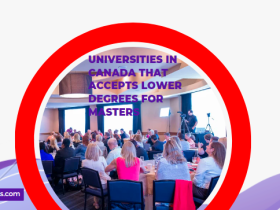UK University Admission Requirements: Undergraduate, Master’s, and Ph.D. The United Kingdom (UK) is one of the most popular destinations for many nationals, including Nigerian students who want quality education, global exposure, and career opportunities. Every year, thousands of Nigerians secure admission into UK universities at different levels, undergraduate, master’s, and Ph.D.
But before you begin your study abroad journey, it’s important to understand the admission requirements for UK universities. This guide explains what you need at each level and how to prepare.
Admission Requirements for Undergraduate Programs
To study for a bachelor’s degree in the UK, Nigerian students, for instance typically need the following:
1. Academic Qualifications
West African Examinations Council (WAEC) or National Examinations Council (NECO) certificate with at least 5 credits, including English language and Mathematics, and other 3 subjects relevant to your intended field of study.
Some universities may ask for A-Levels, International Baccalaureate (IB), or a Foundation Program if WAEC/NECO results alone are not enough.
2. English Language Proficiency
IELTS, TOEFL, or PTE Academic.
Most UK universities accept WAEC/NECO English (minimum C6) as proof of language proficiency if you are applying from an English-speaking country like Nigeria.

3. Personal Statement or Statement of Purpose
A short essay explaining why you want to study the chosen course, your career goals, and why you selected that university.
4. Reference Letter(s)
In some cases, a reference letter is needed, usually from a teacher, principal, or academic supervisor.
5. Valid International Passport and Passport Photo
6. Application Form
Submitted through UCAS (Universities and Colleges Admissions Service) or the particular university admission application portal.
7. Portfolio (if applicable)
Required for creative courses like Art, Design, Media, and Architecture.
Admission Requirements for Master’s Programs
To study for a postgraduate degree (MSc, MA, MBA, MRes, etc.) in the UK, you’ll need:
1. Academic Qualifications
A recognized bachelor’s degree (second-class upper or lower, depending on the university).
Academic transcript from your university. You will also need to send in your WAEC or NECO certificate.
2. English Language Proficiency
IELTS, TOEFL, or PTE Academic.
Some universities waive this requirement if you studied in English or have WAEC/NECO English (minimum C6).
3. Statement of Purpose (SOP) / Personal Statement
Explains your academic background, reason for choosing the course, and career aspirations.
4. Reference Letters
At least one or two, usually from lecturers, professors, or employers.
5. Curriculum Vitae (CV) / Resume
Highlights your academic achievements, work experience, and skills.
6. Work Experience (if required)
Some professional programs, like MBAs, require 2–3 years of relevant work experience.
7. Valid International Passport
8. Application Form
Submitted directly on the university’s website or via their postgraduate portal.
9. Portfolio (if applicable)
For creative and professional courses.
More Read
Admission Requirements for Ph.D. Programs
Doctoral programs in the UK are research-intensive and have stricter requirements. To apply, Nigerians need:
1. Academic Qualifications
A strong Master’s degree in a relevant field.
Exceptional first-class bachelor’s graduates may also be considered.
Academic transcripts of all previous studies.
2. Research Proposal
A well-written plan that outlines your research topic, objectives, methodology, literature review, and expected contribution to knowledge.
3. Supervisor Acceptance
You may need to contact a potential supervisor before applying to ensure your research aligns with their expertise.
4. English Language Proficiency
IELTS/TOEFL/PTE Academic (minimum IELTS 6.5–7.0 depending on the program).
Some universities accept WAEC/NECO English (minimum C6).
5. Academic References
Two or three strong recommendations from lecturers, professors, or researchers.
6. Statement of Purpose (SOP)
Outlines your academic background, research interests, and career plans.
Also Read: Fully Funded 2025 University of Alberta Graduate Scholarship in Canada
7. Curriculum Vitae (CV)
Should highlight academic achievements, research experience, publications, and work history.
8. Writing Samples / Publications
Academic papers, journal articles, or chapters from your master’s thesis.
9. Valid International Passport
10. Application Form & Fees
Submitted online through the university’s portal.
Key Notes for All Applicants
Deadlines matter: Undergraduate applications via UCAS often close in January, while postgraduate and Ph.D. programs have varying deadlines.
Funding and Scholarships: Many UK universities offer scholarships for Nigerians and other nationals. Make sure to check eligibility.
Supporting Documents: Keep scanned copies of all certificates, transcripts, and IDs ready. Some schools may request your employment details, salary slips, and bank statement.
Here’s a clean Undergraduate vs Master’s vs Ph.D. admission requirements table to help you understand better
Comparison of UK University Admission Requirements
| Requirement | Undergraduate | Master’s | Ph.D. |
|---|---|---|---|
| Academic Qualification | WAEC/NECO with at least 5 credits (incl. English & Maths). Some may need A-Levels, IB, or Foundation. | Bachelor’s degree (2:1 or 2:2 depending on school) + transcripts. | Strong Master’s degree (or exceptional First-Class bachelor’s) + transcripts. |
| English Language | IELTS/TOEFL/PTE or WAEC/NECO English (C6 & above). | IELTS/TOEFL/PTE or WAEC/NECO English (C6 & above, sometimes waived). | IELTS/TOEFL/PTE (6.5–7.0) or WAEC/NECO English (C6). |
| Personal Statement / SOP | Required (explains career goals & course choice). | Required (details academic background, course interest, and future plans). | Required (emphasizes research interests and academic journey). |
| References | Usually 1 reference (teacher/principal). | 1–2 references (lecturers, professors, or employers). | 2–3 strong academic references (lecturers/professors). |
| Research Proposal | ❌ Not required. | ❌ Not required (except for research-based master’s). | ✅ Required (detailed research plan). |
| CV / Resume | ❌ Not needed. | ✅ Required (academic + professional background). | ✅ Required (academic, research, publications, work). |
| Portfolio (if applicable) | ✅ Required for creative courses (Art, Design, Architecture). | ✅ Required for creative/professional courses. | ✅ Required for creative/research-based fields. |
| Supervisor Contact | ❌ Not needed. | ❌ Not needed. | ✅ Often required (to match research interests). |
| Application System | UCAS (for most universities). | Direct application via university website/portal. | Direct application via university website/portal. |
This table gives a quick side-by-side comparison that helps you understand the differences clearly.
Final Thoughts
Whether you’re applying for an undergraduate, master’s, or Ph.D. program, UK universities expect strong academic performance, proof of English proficiency, and well-prepared documents.
The admission process may feel challenging, but with proper guidance, you can secure your place at a UK institution.
If you want professional help, EF Global Travels is here to support you. From admission processing to visa guidance, we make your journey to studying in the UK smooth and stress-free.
Your dream of studying in the UK is within reach, get started today!








Leave a Review